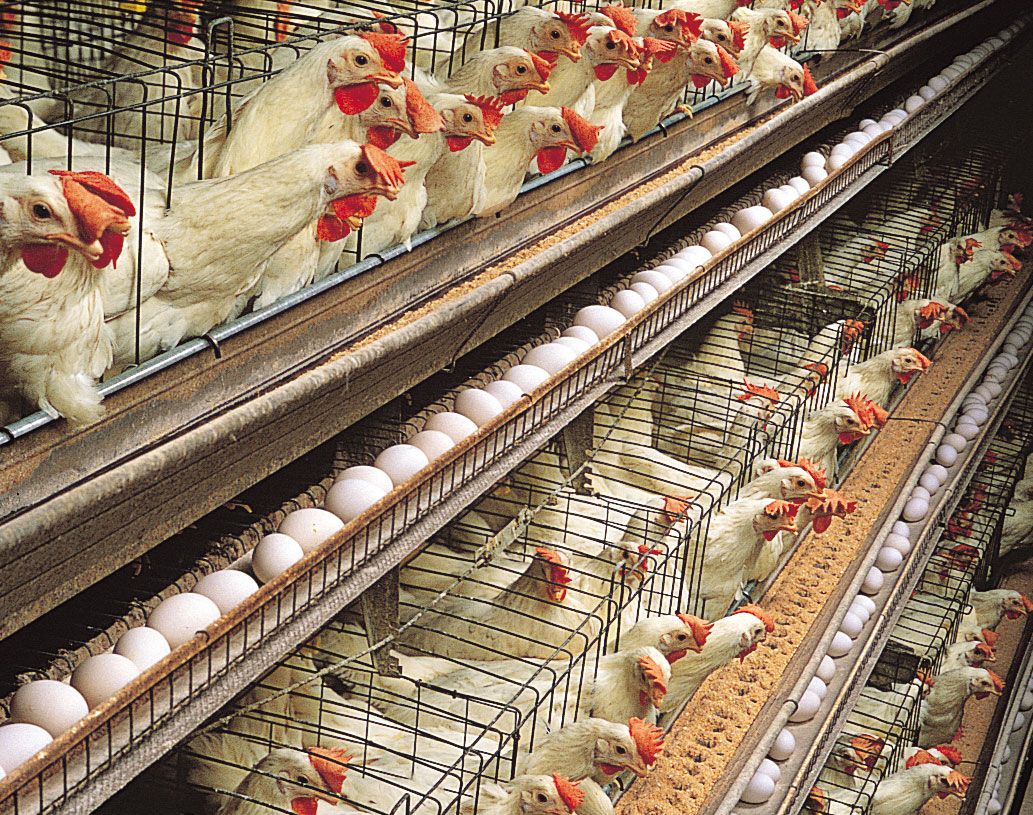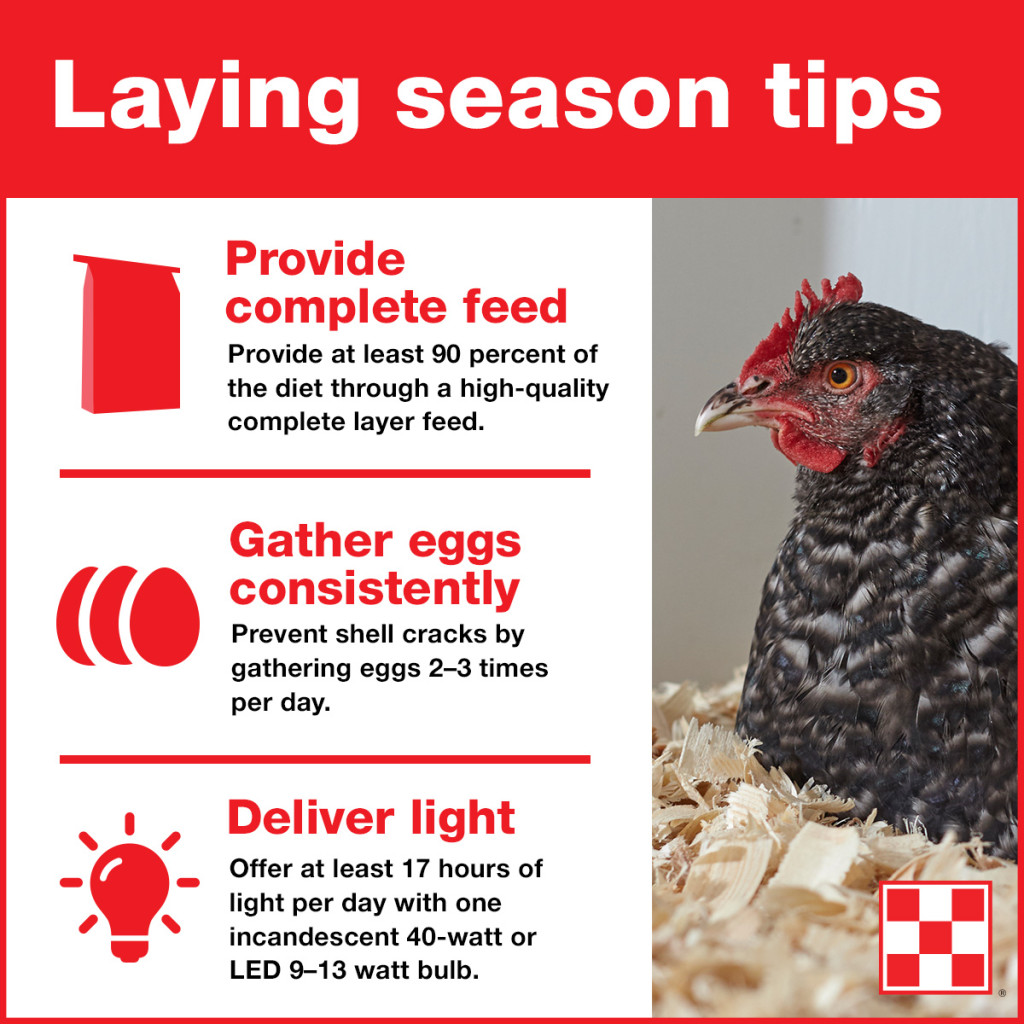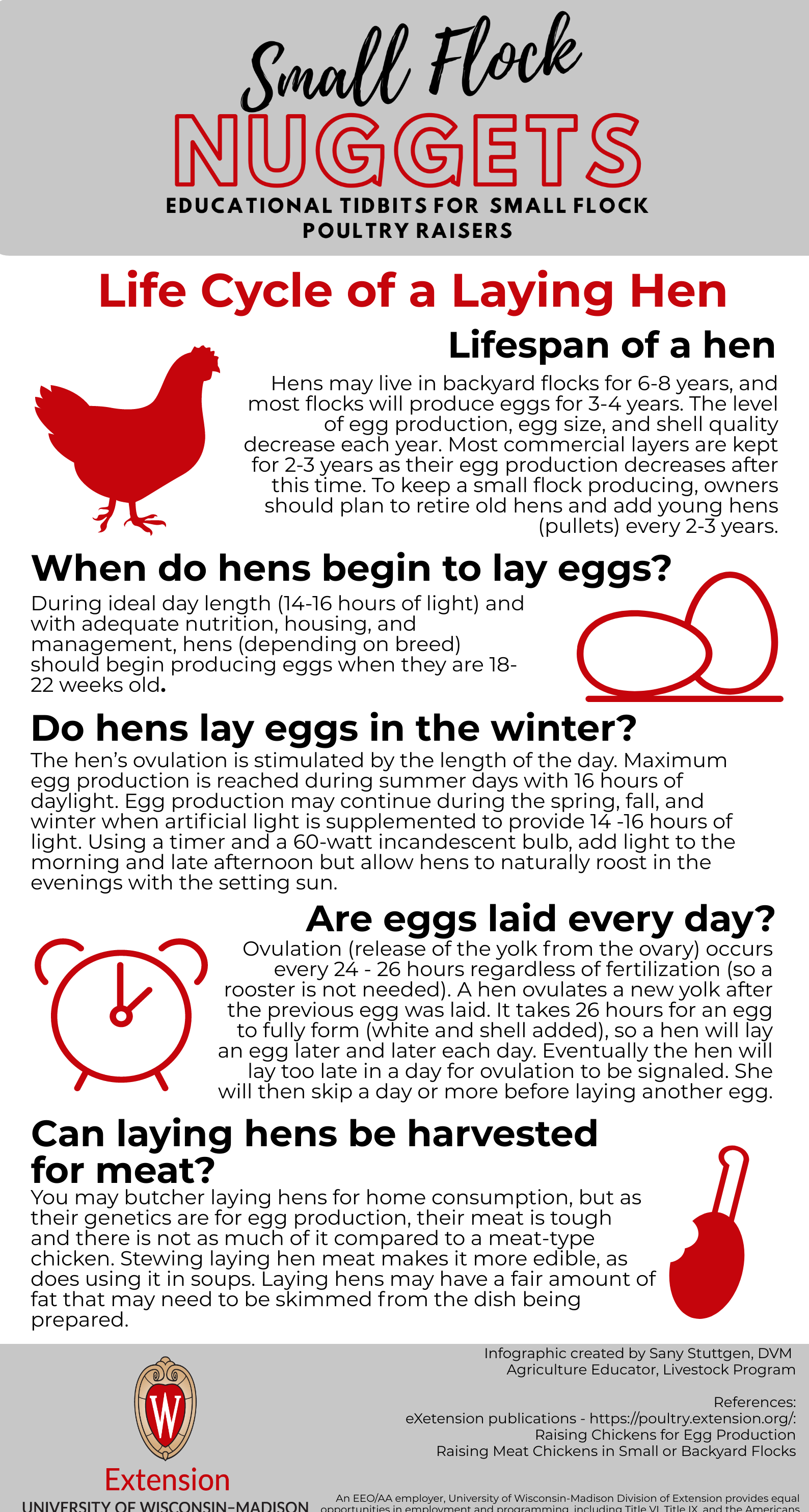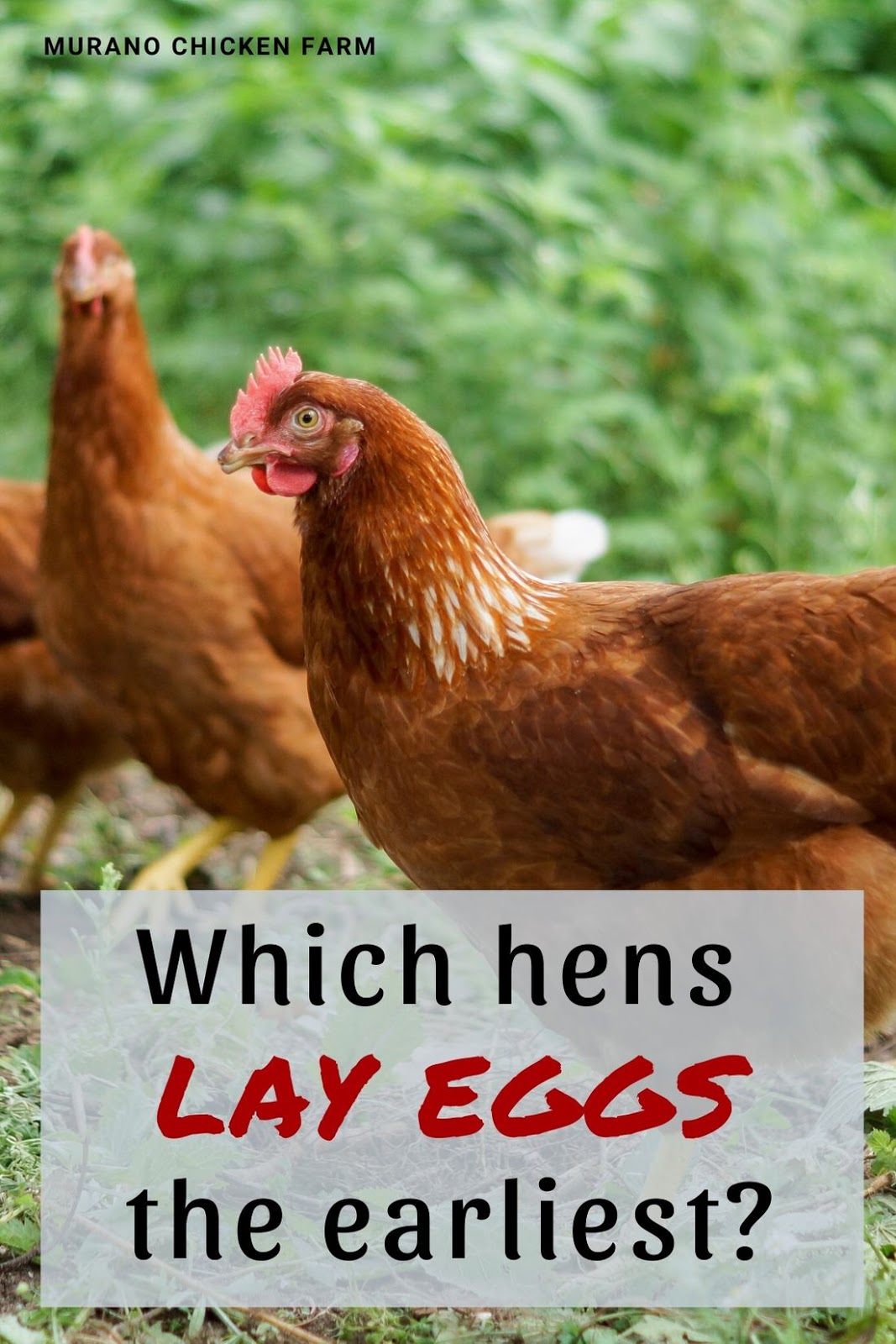Have you ever wondered what time of day hens lay their eggs? For poultry farmers, understanding the timing of egg-laying is a key part of successful husbandry. Knowing when hens typically lay eggs can help farmers to optimize their housing, feeding, and management strategies to maximize egg yields. This article will discuss the current research on the timing of egg-laying in chicken husbandry, and answer the question “What time do hens lay eggs?”
Overview of Chicken Egg-Laying

What time of day do hens lay eggs?
- Most backyard chicken owners will observe egg-laying between 8am and 4pm.
- Chickens lay eggs in response to light stimuli, with brighter light promoting increased egg-laying.
- Commercial egg producers may experience a decrease in egg-laying during the winter months.
- Hens are likely to lay eggs in the same general area, usually a nesting box.
- The number of eggs laid by a single chicken can vary significantly depending on breed, age, and health.
- Chickens lay fewer eggs as they age, with egg production ceasing altogether when a hen reaches about five years of age.
Factors Impacting Egg-Laying Time

Light
Hens are highly sensitive to light and require at least 14 hours of light each day. When the light levels are sufficient, the bird’s reproductive system will be triggered and the hen will begin to lay eggs. Even a short period of darkness can cause the hen to stop laying eggs.
Weather
Weather can also affect the timing of egg-laying in chickens. In cold weather, hens may lay fewer eggs and the eggs may be smaller than usual. In hot weather, hens may lay fewer eggs and the eggs may be of lower quality.
Age
The age of the hen is also an important factor. Young hens usually start laying eggs earlier than older hens, and they lay eggs at a more consistent rate. Older hens may lay fewer eggs and may have irregular egg-laying cycles.
Breeds
The breed of chicken also affects the timing of egg-laying. Some breeds of chickens lay eggs earlier than others. Certain breeds, such as the Rhode Island Red, are known for their ability to lay eggs consistently throughout the year. Other breeds, such as the Plymouth Rock, are known for their ability to lay eggs at a more consistent rate.
In conclusion, there are many factors that can affect the timing of egg-laying in chickens, including light, weather, age, and breed. To ensure a consistent supply of eggs, it is important for chicken-keepers to understand these factors and adjust their husbandry practices accordingly. Knowing what time do hens lay eggs can help chicken-keepers maximize their egg production.
What Time of Day Do Chickens Lay Eggs?

Chickens usually lay their eggs in the morning, usually within a few hours after sunrise. This can vary depending on the breed of chicken, the individual chicken, and the time of year. Some chickens lay eggs in the afternoon or even in the evening.
Breed: Different breeds of chickens have different egg-laying habits. Some breeds, such as Rhode Island Reds, are more likely to lay eggs in the morning. Other breeds, such as Leghorns, tend to lay eggs in the afternoon.
Individual Chicken: Even within a breed, individual chickens can have different egg-laying habits. Some chickens may lay eggs earlier in the morning, while others may lay later in the day.
Time of Year: The time of year can also influence when chickens lay eggs. During the summer months, chickens may lay eggs earlier in the day, while during the winter months they may lay eggs later in the day.
In general, chickens lay their eggs in the morning, but this can vary depending on the breed, individual chicken, and time of year.
Summary of Findings
- What time of day do chickens lay eggs? Chickens lay eggs throughout the day, with peak hours of egg-laying occurring between 8am and 11am.
- Hens are more likely to lay eggs in the morning when the light is brighter and the temperature is cooler.
- The environment in which the chickens are raised can also affect egg-laying habits, as birds kept in more natural or enriched settings tend to lay eggs earlier in the day.
- Hens are also more likely to lay eggs when they are provided with a more varied diet, which can increase the nutrient availability and improve the overall health of the bird.
- The age of the hen can also influence when eggs are laid, with younger hens tending to lay eggs earlier in the day and older hens laying eggs later in the day.
- The number of eggs laid per day can vary, but typically ranges from two to five eggs for one hen.
Frequently Asked Questions
How do the Environmental Conditions Affect the Timing of Egg-Laying in Chickens?
- Light: Chickens lay eggs in response to the length of daylight. The amount of light chickens receive in a day affects their egg-laying cycle. If the day length is shorter, the hens will lay fewer eggs. Conversely, if the day length is longer, the hens will lay more eggs.
- Temperature: Temperature also affects the timing of egg-laying in chickens. Low temperatures cause the hens to lay fewer eggs than normal. When temperatures are higher, hens lay more eggs.
- Food: Proper nutrition is essential for chickens to lay eggs. If a hen has inadequate nutrition, it will not lay as many eggs or lay them as frequently as it would with a good diet.
- Stress: Stress is a major factor when it comes to egg-laying in chickens. If a hen is stressed, it will lay fewer eggs than usual. Stress can be caused by overcrowding, changes in environment, and other factors.
The environmental conditions in which chickens are kept can have a drastic effect on the timing of egg-laying. Variations in light, temperature, nutrition, and stress levels influence the hens’ egg-laying cycle, and can affect the number and frequency of eggs laid.
What are some common signs to indicate when a hen is about to lay an egg?
1. Nesting: Hens will often start making a nest in preparation for egg-laying. They may move any available material into a nest box and line it with their feathers.
2. Increased Vocalizations: A hen will often vocalize more than usual when she is about to lay an egg.
3. Changes in Activity: A hen may become more active near the time of egg-laying, walking around the coop and looking for the right spot to lay her egg.
4. Flagging: A hen may become restless, standing up and flapping her wings while squatting down in an attempt to lay her egg.
5. Increased Egg Production: A hen may start producing eggs more frequently, laying one or more eggs a day.
Are there any methods to promote egg-laying in chicken husbandry?
Nutrition: Adequate nutrition is essential for optimal egg-laying. Feeding chickens a balanced diet rich in protein, calcium, and vitamins will help ensure they lay eggs regularly.
Lighting: Providing chickens with 16-18 hours of light per day is known to increase egg production.
Temperature: Keeping chickens in temperatures between 40-75 degrees Fahrenheit will encourage egg-laying.
Hygiene: Clean and dry nesting boxes will help promote egg-laying as well.
Stress Reduction: Minimizing stress is also important for optimal egg-laying. Keeping chickens in an environment free from predators, loud noises, and overcrowding will help reduce their stress levels.
Breed: Different breeds of chickens will lay eggs at different rates, so selecting the right breed for your needs is important. Some breeds lay more eggs than others, so be sure to research the breeds you are considering before making a purchase.
Are there any genetic factors that influence the timing of egg-laying in chickens?
Yes, there are several genetic factors that may play a role in the timing of egg-laying in chickens. These include:
- The breed of chicken – some breeds lay eggs at a certain time of day, while others may lay eggs at different times of the day.
- The age of the chicken – younger chickens tend to lay eggs earlier in the day than older chickens.
- The body size of the chicken – larger chickens tend to lay eggs earlier in the day than smaller chickens.
- The health of the chicken – chickens that are in better health tend to lay eggs earlier in the day than chickens that are not in peak health.
- The environment – chickens that are kept in a more natural environment with more daylight tend to lay eggs earlier in the day than those kept in an artificial environment.
These genetic factors can all influence the timing of egg-laying in chickens, making it important for chicken owners to be aware of them when selecting the right breed and environment for their flock.
What is the Average Number of Eggs a Hen Lays in a Day?
The average number of eggs a hen lays in a day is 1-2. However, this can vary depending on the breed and age of the chicken. Egg production usually increases after the first year and peaks in the second year. After this, production gradually declines.
Conclusion
The timing of egg-laying in chicken husbandry is affected by many factors, including the breed, age, and health of the hens, as well as the amount of light they are exposed to. Generally, hens lay eggs in the morning hours, with peak egg-laying occurring between 8-10 am. To ensure a consistent supply of eggs, chicken farmers should provide their hens with a consistent environment that provides the optimal conditions for egg-laying.
